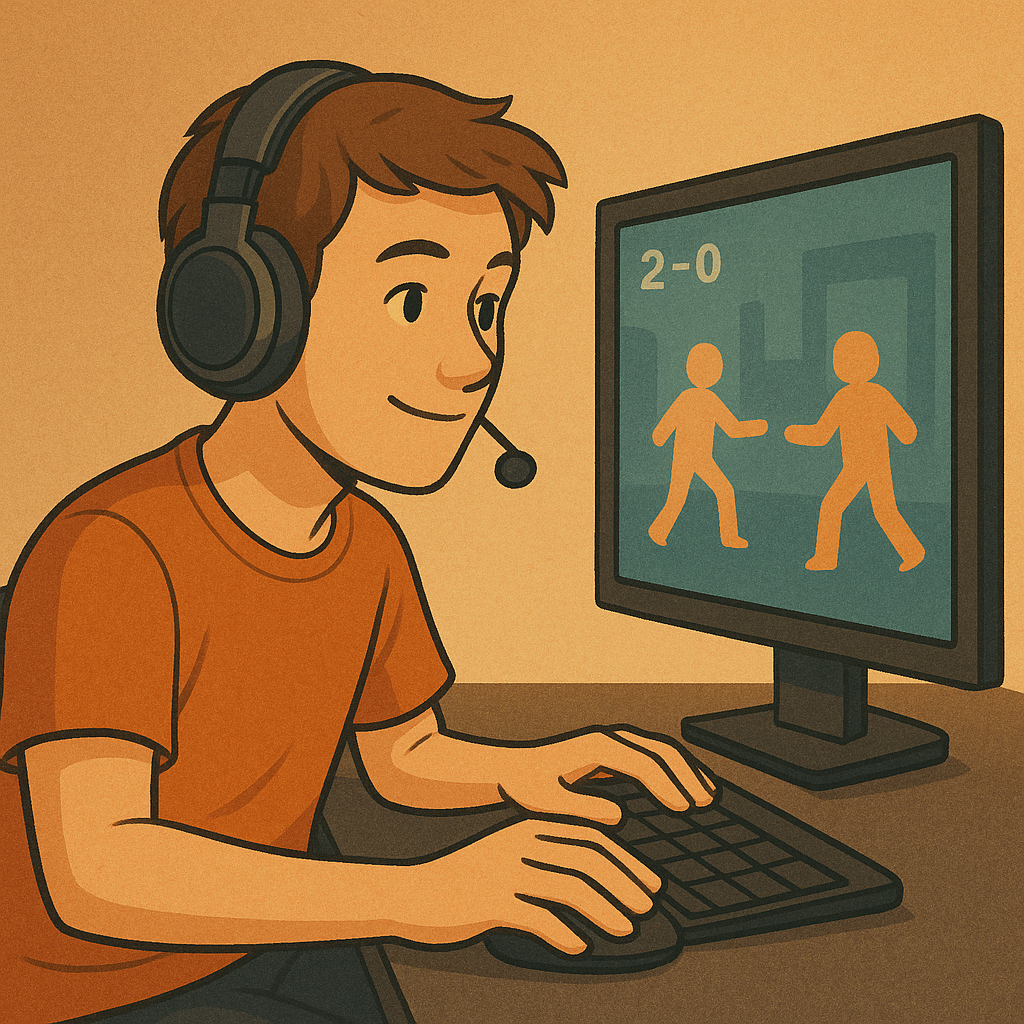Did you ever stop playing in the middle of a game and find yourself thinking, “Why do I care so much about this?” Even if it’s not the end of your life and nobody’s giving you a prize, your heart is pounding like it’s the World Cup final. It would appear that feeling isn’t random. There’s a lot going on behind the pixels.

Post Contents
Not Just a Game
No matter if we’re racing around a first-person shooter, rolling dice in a fantasy card fight, or moving pieces on a strategy board game online, we’re not just having a good time. What we’re saying. In small decisions about how we move, react, and learn, we start to look like ourselves in digital form.
It’s oddly personal.
Even the way certain platforms are designed reflects this. The blend of logic and instinct required in games like Valor Casino taps into that deeply human itch—not just to win, but to outsmart. And when we do, it’s more than a victory. It’s a little nod from the universe: You’ve still got it.
The Drive Behind the Clicks
We often say we’re “just playing to unwind,” but let’s be honest—something deeper’s at play. It’s the competition. But not necessarily with others.
Sometimes we’re trying to beat our past selves. That high score from last week. That one level we couldn’t finish. It becomes a quiet kind of rivalry. A personal project. And the thrill? It’s in the effort. The pushing, adjusting, learning. The moments when time disappears and all that exists is you, your keyboard, and the next move.
Flow state. Mental candy. Whatever you want to call it—it’s addictive for a reason.
The Beauty of Struggle
Ironically, what hooks us isn’t how easy a game is—it’s how hard.
If every match were a guaranteed win, we’d be bored in five minutes. We need the friction. We chase it. That moment when you lose by a split second? That sting is frustrating—but also weirdly energizing. You want the rematch. You start thinking about what to change next time. That little fire in your gut? That’s growth in disguise.
It’s Not All Solo
People love to joke that gamers are antisocial. But in reality? Many of us are more connected than ever.
We compete, but we also share. Tips. Memes. Heartbreaking losses. Victory screenshots. The community aspect of gaming has become massive—and it’s often the reason we keep coming back. Some of us meet our closest friends in digital spaces. Others find worthy rivals who push us further than we ever would’ve gone alone.
Funny how a random username on the other side of the world can impact your mindset, right?
Is It Escapism?
Sure. But is that a bad thing?
People read books to escape. They run marathons for clarity. Gaming isn’t any different—it’s a way to shift gears, unplug from the real world, and enter one where the rules are clear and the goals are measurable. And for many, it’s not just distraction. It’s also training. You’re building focus. Patience. Grit.
Even failure, in this world, is oddly safe. You mess up, and the worst-case scenario is usually “start over.” There’s comfort in that.
What’s Next?
Online competition is evolving fast. Games are getting smarter. Communities tighter. Virtual reality, AI, adaptive difficulty—it’s no longer about simple win-or-lose.
It’s about immersion.
We’re moving into a space where the line between play and experience is blurring. Where games might not even feel like games anymore. They’ll feel like stories we co-create. Challenges we personalize. Worlds we live in, even if just for a while.
And through it all, one thing stays the same: the human hunger for testing ourselves.
One Last Thought
At the end of the day, it’s not about the scoreboards or shiny badges. It’s not even about beating someone else. It’s about that quiet satisfaction when you know you gave it everything. When the screen fades to black and you exhale, not just because the match is over—but because you showed up. You gave a damn. You pushed. You played your heart out.
And you’ll probably be back tomorrow.